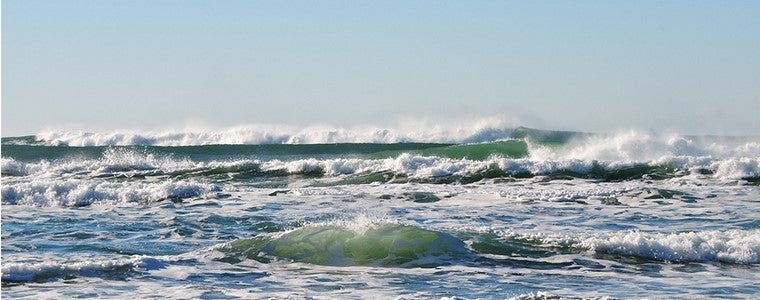Today is World Oceans Day 2018 (#WorldOceansDay) with the action focus being: Preventing plastic pollution and encouraging solutions for a healthy ocean. There is an increasing awareness of the importance of oceans especially the issue of contamination of ocean space by marine debris, including plastics, with the ever-increasing growth of the Great Pacific Garbage Patch; but of greater importance is the evolution of the concept of the Blue Economy. The conceptual framework originally was centered around the interconnectivity of the economic, environmental, and social sustainability, but now has become synonymous with sustainable ocean economies.
Since the origin of this concept, back in 2011 at the second preparatory committee for Rio+20, there has been a marked increase in international awareness of the oceans’ potential as a key driver of economic growth. Nowadays, there is consensus around the concept of Blue Economy as a sustainable ocean economy in which “economic activity is in balance with the long-term capacity of ocean ecosystems to support this activity and remain resilient and healthy” (The Economist, 2015; Roberts & Ali, 2016).
Considering that many islands have jurisdiction over ocean areas which may far exceed their terrestrial footprint and are dependent on ocean resources and the sectors they support, the development of a Blue Economy has the significant potential for islands, whether they are individual countries or comprise territories belonging to continental countries, to support them in becoming self-sufficient, provided that proper planning and management of ocean resources occur. Because of this, there is now a Sustainable Islands program in the Inter-American Development Bank that focuses on the sustainability of the islands territories on the basis of the Blue Economy intertwined with a circular approach to consumption and production (think: recycling, reformation, reuse of materials, and improvements in the efficiency of processes), whist at the same time building resiliency to the impacts of climate change in these territories (one can never forget this ever increasing threat).
The obvious question is how or what is needed to build a Blue Economy in small island states (and territories)? There are several essential elements that we need to effectively implement a Blue Economy, we need:
- To improve decision makers’ understanding of the Blue Economy, its components (there is more in the waters of the islands than just sea, sand, and sun) and potential benefits to island nations and territories;
- Regional and local frameworks for monitoring and analyzing maritime-economy data must be established;
- Blue Economy concepts to be incorporated in financial and spatial planning at the national level; and finally
- Communicate effectively and discuss extensively the Blue Economy at the regional and local levels.
The last requirement is a critical one, as the ultimate objective is to create a shift in thinking for island states and islanders in the way they see the ocean.
The expected effect? A paradigm shift from a land-centric economy to ocean centric one; one that views the development space of islands no longer limited or land locked but ocean wide, moving from a small island state to a big ocean state (#BOSs). This means rethinking the way activities are carried out inland considering the plausible positive and negative interactions with the coastal and marine spaces and resources.
The Blue Economy can respond to basic needs of all islanders, based on the resources that are most available, introducing innovations inspired by nature, generating multiple benefits, creating jobs, and strengthening social capital, in sum: offering more with less.
Finally, since WOD 2018 focus is to help prevent plastic pollution, integrate circular economy principles into Blue economy initiatives as much as possible and begin thinking like a #BOSs!


Leave a Reply